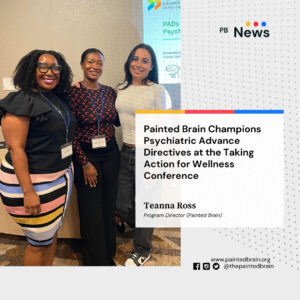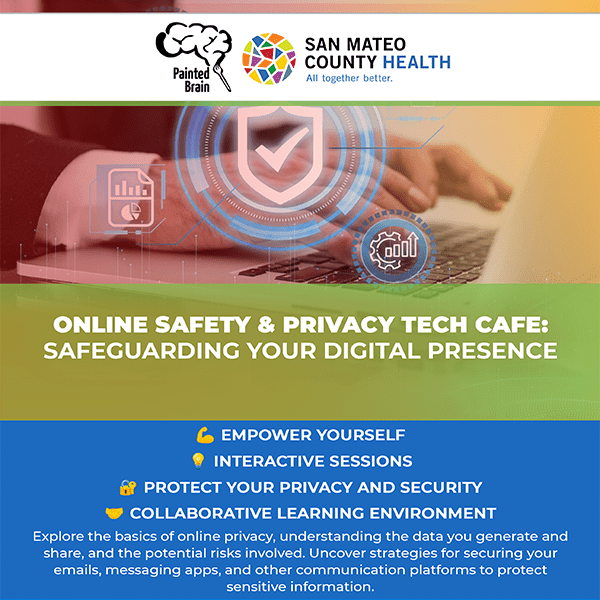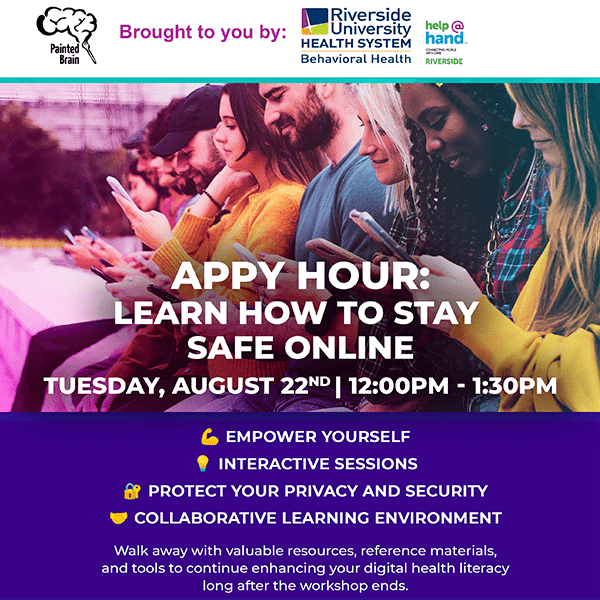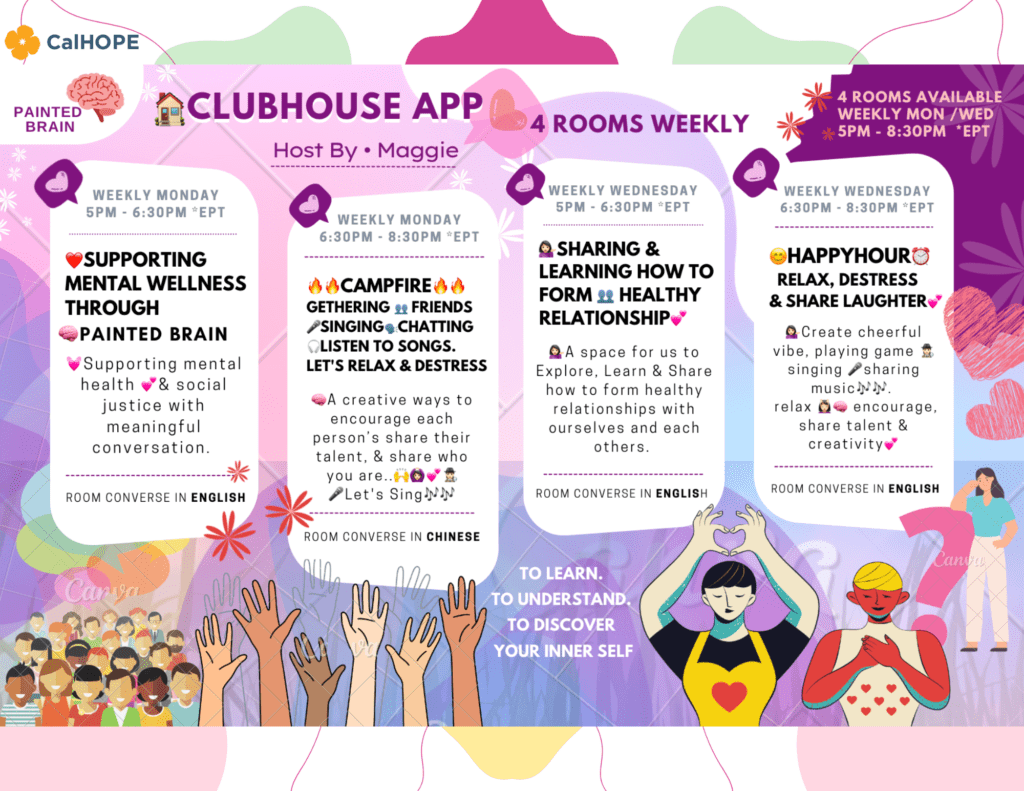Exposure to online spaces like TikTok, Instagram, and Facebook feeds is called “emotionally contagious” and can affect your mental health.
Social media has rapidly evolved over the years, and while it often gets a bad reputation for contributing to anxiety and depression, when used intentionally, it can provide significant mental health benefits.
Here are seven ways social media can positively impact mental health in 2024:
1. Relieve social isolation and loneliness by opening up new communication pathways

These support networks complement our work with Peer Support Groups, where community connection is central to recovery.
With the increased popularity of community-driven platforms, social media has become a lifeline for people seeking support. Platforms like Facebook Groups and Discord communities allow individuals to connect with others who share similar challenges, creating safe spaces for discussion, empathy, and support. These groups often provide a sense of belonging that can reduce feelings of isolation.
In 2024, peer support apps like Wisdo and 7 Cups have become more popular, offering real-time mental health support from people with shared experiences.
Twenty-four-hour suicide prevention hotlines aren’t the only sources of intervention.
Facebook Groups offer a wealth of support groups for people living with depression, anxiety, and loneliness.
- How a Facebook Group Helped Me in My Battle … – The Mighty
- Top 10 Online Groups for Depression and Anxiety as Well as Anonymous Chat Options
- 10 Facebook Groups For Grief and Loss Support
An increasing number of websites are now offering support through social media channels. These sites often provide anonymous forums for people to connect and share personal experiences.
Strengthen existing relationships.
Social media can also help manage relationships, especially with those who live far away from each other, thus breaking down geographical barriers. It can also be helpful at maintaining relationships for those with disabilities, such as older people and people with physical handicaps which limit their mobility and prevent travel outside the home.
Far from increasing isolation, social media can provide alternative means of finding support, even helping to lift depression. As Meetups have shown, they can also provide a healthy excuse to go outside rather than stay cooped up indoors or hunched over a computer.
2. Access to Mental Health Resources

This type of online resource amplifies efforts like Painted Brain’s Digital Health Literacy, which equips individuals with the skills to navigate digital resources that promote mental wellness.
The accessibility of mental health content has grown thanks to professionals and organizations leveraging platforms like Instagram, TikTok, and YouTube. Mental health advocates and licensed therapists now use short-form video content and reels to offer tips on managing anxiety, stress, and depression. With the rise of TikTok’s Wellbeing Hub, users can find easy-to-digest mental health advice, coping strategies, and therapy exercises.
- How a Facebook Group Helped Me in the Midst of My Depression
- Instagram Accounts That Reduce Stigma
- 10 Instagram Accounts to Follow if You Suffer from Depression
TikTok has become a platform for thousands of healthcare professionals, including psychiatrists, therapists, and mental health advocates. They use the app’s widespread reach to talk to audiences about everything from depression to ADHD.
3. Promoting Mental Health Advocacy and Awareness
The advent of viral mental health movements on platforms such as Twitter/X and Instagram has significantly raised awareness about mental health issues. Hashtags like#MentalHealthAwareness and #EndTheStigma have helped normalize conversations about mental health, and in 2024, this trend continues to grow with new campaigns launched regularly. These campaigns break down stigma, encourage people to seek help, and provide educational resources for those who may not otherwise have access.
This advocacy complements our own mental health awareness efforts at Painted Brain, which include ongoing campaigns and training sessions.
- The Digital Health Revolution and Its Impact on Mental Health
- How Virtual Assistants Are Helping the Healthcare Industry Deal with the Challenges of the New Normal |
- An AI Used Facebook Data to Predict Mental Illness
- AI helps diagnose depression three months earlier than health services by analyzing Facebook posts
- When And Why Your Behavioral Health Agency Could Really Use Social Media

This aligns with Painted Brain’s focus on integrating technology and wellness, where digital health tools are increasingly important.
4. Mindfulness and Mental Wellness Apps Integration
Social media is no longer just about networking and posting updates. Platforms are increasingly integrating with wellness apps like Calm, Headspace, and Insight Timer to promote mindfulness and stress relief. In 2024, you can find influencers, mental health advocates, and fitness coaches recommending mindfulness practices directly through their social media profiles, linking directly to these mental wellness apps for daily practices.
Additionally, AI-powered mental health chatbots like Woebot are gaining traction on platforms like WhatsApp and Facebook Messenger, providing instant, automated mental health support.
5. Encouraging Self-Expression and Creativity
Platforms like TikTok and YouTube are fostering creativity through video challenges, art, music, and writing. For many, self-expression is a way to cope with mental health challenges. In 2024, creative expression on social media continues to be a powerful outlet for individuals to share their experiences with mental health, connect with others, and find therapeutic release through art, music, or writing.
Self-expression through art is a core part of what we do at Painted Brain’s Art Groups, where creativity is used to foster mental wellness and community engagement.
6. Combating Loneliness with Virtual Communities
Virtual communities are thriving more than ever, offering support in ways that weren’t possible a few years ago. Twitch streams, Clubhouse rooms, and Twitter Spaces allow real-time interaction and conversations that can help people feel connected, especially for those who may struggle with social anxiety or who feel isolated due to geographical limitations.
These live, interactive platforms are especially impactful during moments of crisis or during holidays when feelings of loneliness are often heightened.
Our community support programs at Painted Brain (like the one above) serve the same purpose—providing inclusive spaces for individuals to connect.
Provide teens with opportunities to develop technical and other skills needed to function in society.
A common dilemma among people with mental illness (including depression) is the reluctance to talk to people closest to them about their problems. More and more young people are turning to the Internet for health advice, including topics such as contraception, acne treatments, etc.
Far from being a singularly destructive force in their development, social media can, in fact, do quite the opposite. Many teens will post online what they are reluctant to share with their parents. For troubled youth, this makes early intervention by concerned friends and peers more possible.
For others, it provides a rich opportunity to experiment with different modes of creative self-expression, which is therapeutic in itself. While it is impossible to deny the dangers of social media, parents may choose to focus on its positive uses to promote better online habits in their children.
7. Facilitating Professional Help
Access to professional mental health services has expanded greatly in recent years. Teletherapy services such as BetterHelp and Talkspace now use social media for promotion and education, offering seamless access to professional help from licensed therapists. Many therapists now maintain active social media profiles where they engage with followers, share advice, and encourage healthy mental health practices.
Instagram Lives, TikTok AMAs, and YouTube Live Sessions have become common tools for therapists to share insights and address audience questions in real time, democratizing mental health support like never before.
At Painted Brain, we also encourage access to occupational therapy services to assist in managing mental health challenges professionally.
The ultimate takeaway:
Make Social Media Work For (Rather Than Against) Your Mental Health
Social media isn’t harmful or beneficial in itself, but its manner of use is the determining factor.
Back to the Harvard study,
“The findings suggest that as long as we are mindful users, routine use may not in itself be a problem. Indeed, it could be beneficial.”
In 2024, social media has transformed into a tool that can support mental health in diverse ways, from building supportive communities to raising awareness and improving access to resources. However, it’s essential to remember that balance is key. By using social media with intention and following accounts that promote healthy mental health practices, individuals can harness its benefits while mitigating its potential downsides.
Related Articles
Negative
- Social Media & Mental Health
- 6 Ways Social Media Affects Our Mental Health
- Facebook Causes Depression New Study Says
- Is Social Media Dependence A Mental Health Issue?
- Why Social Networking Is Bad for Your Mental Health
- 7 Ways Facebook Is Bad for Your Mental Health
- Ssocial media is an epidemic among our nation’s teens.
Neutral
- Social media: how does it affect our mental health and well-being?
- PROS AND CONS OF USING SOCIAL MEDIA IN 2021
Positive
- Benefits of internet and social media
- Mental Health Therapy Through Social Networking Could Soon Be a Reality
- #timetotalk: Is social media helping people talk about mental health?
- Is social networking good for your mental health
- National Year of Digital Inclusion to enhance nation’s digital skills
- Benefits of Social Media in Mental Health Practices (Part 2)
“Self-disclosure can be an important therapeutic ingredient and is linked to improved physical and psychological well-being (in which) Individuals may choose to withhold their actual identities allowing themselves to engage in more candid self-disclosure than is possible in offline settings.”
According to NCBI,
Actively interacting with people — especially sharing messages, posts, and comments with close friends and reminiscing about past interactions — is linked to improvements in well-being.
“Concerns about the negative impacts of social media have dominated public debate. However, recent studies show there are clear health benefits to being online and connected.”
– Joanna Egan, Women’s Health
Kevin Naruse is the Communications Director at Painted Brain and the chief editor of Painted Brain News.

